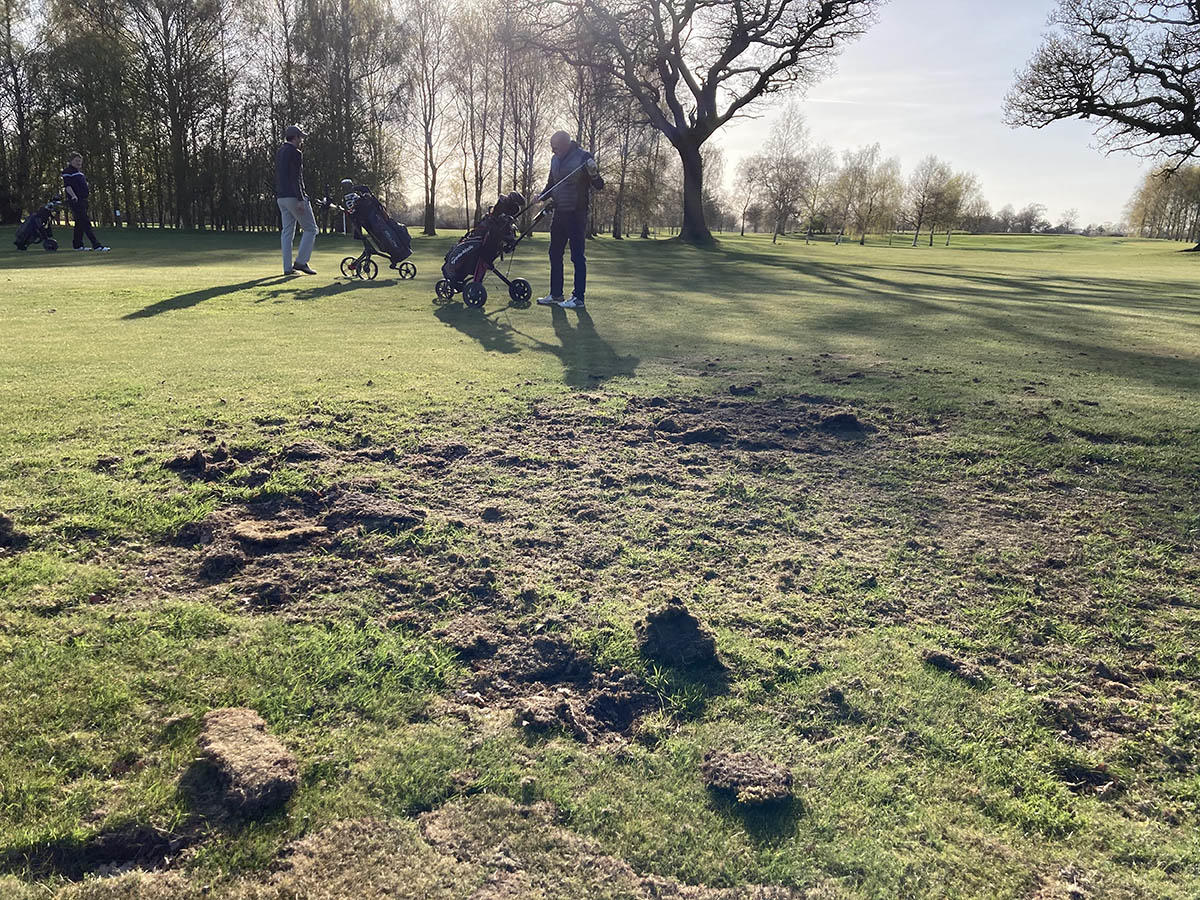- Homepage
- News and Features
- BIGGA and Syngenta host major industry event focussing on threat to the golfing industry
BIGGA and Syngenta host major industry event focussing on threat to the golfing industry
Update: This webinar has now taken place, with more than 400 stakeholders from across the golf and greenkeeping industry registering to take part. You can rewatch the webinar below.
If you tuned in, we'd like to hear your thoughts, so join the discussion by emailing [email protected] using the subject line "Managing the Leatherjackets Challenge"
Managing the Leatherjackets Challenge
Previous article:
BIGGA and Syngenta to host major industry event focussing on the threat to the golfing industry caused by increasing populations of harmful insects
This summer will see the return of BIGGA’s popular Continue to Learn Extra webinar series and kicking off the programme of learning is a talk with industry expert Glenn Kirby about the high levels of leatherjackets and chafer grubs that have caused tremendous damage to many courses during the early part of 2021.
REGISTER HERE

A recent social media survey by BIGGA Partner Syngenta found that during 2020 just 1% of UK golf courses reported no damage due to these insects. Hidden below the surface of the nation’s golf courses, leatherjackets are threatening the enjoyment and economic viability of the sport. Of the 400 course managers who responded to the survey, almost all reported that their course was negatively impacted by an infestation of the larvae of craneflies – also known as leatherjackets – and chafer grubs.

On 13 May BIGGA will be hosting an important industry event, when Syngenta Technical Manager Glenn Kirby will explain the reasons behind the damage and why it is important for the golfing industry to unite to support golf club teams during this distressing time.
Extensive damage to sports turf is caused by the larvae feeding on the turfgrass, while predators can also cause significant and widespread damage as they hunt for these larvae. The impact on a golf course can be serious, with increased costs as greenkeeping teams battle against the damage and the potential for large losses in revenue as golfers choose to play at courses that have been unaffected by the pests. However, unaffected courses are increasingly in the minority.

Alongside the webinar, BIGGA and Syngenta will be distributing a white paper to the golf industry that will provide an in-depth study of the situation including its causes, impact and potential solutions and will also be encouraging golf’s leading bodies to share this information to a wide audience.
This Continue to Learn Extra webinar is free to attend for anyone involved in golf club our course management. You can register for this vital industry event online now on the BIGGA website.
Syngenta’s Glenn Kirby said: “My goal when I started investigating the problem of leatherjackets was to get all golf courses to zero damage, as that’s what is being expected of course managers. But it has become increasingly clear to me that we are going to have to adjust our expectations. We all want perfect surfaces year-round, but without additional tools in our armoury I suspect that may not be a realistic goal.”
The ‘Managing the Leatherjacket Challenge’ webinar kicks off a summer of online learning for BIGGA members, with other webinars being hosted from May until September 2021. Taking a leading role will be management expert Tyler Bloom, while other topics for discussion will include golf course ecology, Women and Girls’ Golf Week and representatives of the European Institute for Golf Course Architects discussing ways of making golf courses more appealing to a wider audience. Head to the BIGGA website for more information.
Tags
Author

Karl Hansell
Karl has been head of communications for BIGGA since March 2016. His duties include editing the monthly Greenkeeper International magazine, in addition to other communications activities for the association.


